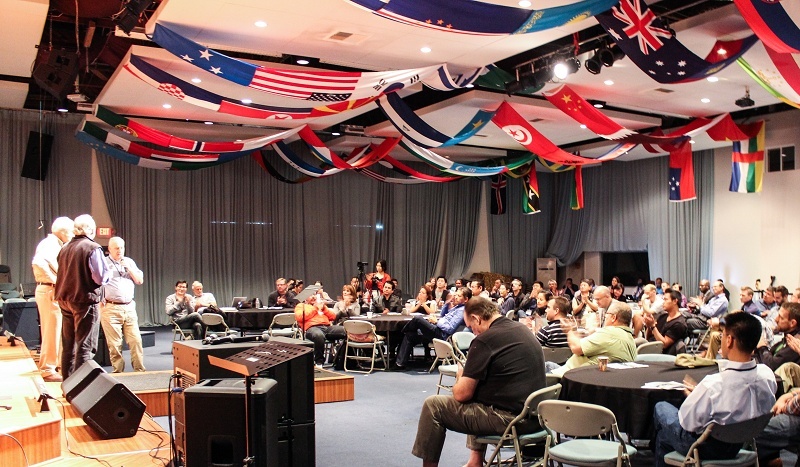

The recent Glocal Church Summit took place at Ttokamsa Mission Church in Los Angeles from November 17 to 19, during which attendees were challenged to break out of traditional ways of outreach, and to be led by the Spirit in how they can love their neighbors.
Jesus gave the Great Commission as his last command before his ascent into heaven, and during his life on earth, emphasized that the greatest commandments are to love God, and to love our neighbors. As such, the church prioritizes and heavily focuses on missions, and has attempted throughout the years to think in new ways about how better the church can obey this significant command.
One of the most recently new ways the church has been thinking of missions is by focusing on missions at home"”within the very communities in which the church is located. The "Glocal' Church Summit, which took place on November 17 to 19 at Ttokamsa Mission Church in Los Angeles, likewise, strove to reframe the way in which church thought of missions, and encouraged the attendees to focus on their neighborhoods. However, this summit took a particularly bold approach in challenging the church. It actually encouraged the church to throw away old conceptions and approaches to church and to evangelism, and take on a whole new approach"”one without programs, and one without teaching.
"What's God up to in our neighborhood, and how can we join Him in what He's already doing?"
This was the foundation on which some of the main speakers"”including Alan Roxburgh, a pastor and author of Reaching a New Generation; Tim Soerens, a co-founder of the Parish Collective; Mark Lau Branson, the Homer L. Goddard Professor of the Ministry of the Laity at Fuller Theological Seminary; and Dave Gibbons, founder of NEWSONG Church"”based their challenge to the church.
The speakers essentially challenged the church to give up "European,' traditional ways of evangelism in which the missionary believes he or she has something to teach the non-Christian, non-Western people. This approach patronizes neighbors, they argued, and even commodifies them, causing them to become a mission to accomplish or a goal to attain. Traditional ways of planning for outreach or mission, which would usually include questions such as "How do we meet people's needs?" "How do we get people into our church?" puts the church in a superior position, or considers the neighbors a commodity for the church to attain, they said.
"When we universalize a method like strategic planning, a method of achieving preset goals and objectives, we essentially turn every variable in the process, including human beings, into objects to be used in the achievement of a goal," Roxburgh argued in his book, Missional Mapmaking, which Branson quoted during his keynote session. "There is no way around this. Strategic planning uses objectification to achieve ends."
Instead, attendees were challenged to throw away the programs, the strategies, and evangelism tools; and they were encouraged to do two things: listen to their neighbors, and join God. They were challenged to instead ask the questions, "What is God up to in our neighborhood?" "How can we discover where God is already at work?" "How can we join God?" Instead of patronizing our neighbors by thinking we are somehow superior and have something to offer or to teach them, attendees were challenged to simply listen to the neighbors' stories and love on them. Instead of striving with our own effort with strategies and programs, the church was challenged to simply discern how God is already moving in the church and the community and to join Him in it.
The three-day summit was sponsored by the Christian Reformed Home Missions, Fuller Theological Seminary, Calvin College, and Calvin Theological Seminary.

















